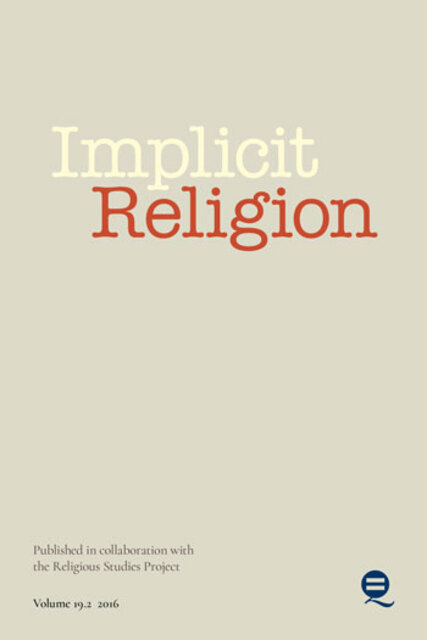Robo-Theisms and Robot Theists: How do Robots Challenge and Reveal Notions of God?

Full description
When considering posthuman figures such as robots, artificial intelligences, or even dramatically enhanced human beings, it is not uncommon to regard them as godlike, owing to their superhuman strength, power, and abilities that may transcend the human condition in pursuit of ‘perfection’ with traits such as immortality or omnipotence. Equally, though, there is a celebration of the human creators of this posthuman progeny, as it is human interests that such robots are made to serve. Thus, there appears to be also an elevation of humans: in religious language and motifs this corresponds to hubris or idolatry; in non-religious terms this raises concerns about the future evolution of the species. Both discussions prompt reflection on our powers and abilities, thereby raising the question of playing God, which this article attends to. The question of posthuman theology, though, is rarely asked or is shunned, which may reveal something about our own sense of religiosity and conceptions of divinity that are transposed onto our creations and our relationships with them. What does it mean to consider a posthuman theology – as affirmative but also disruptive of our own theologically-rooted ideas; and as concealing but also revealing of notions of God?
- typeImage
- created on
- file formatjpeg
- file size13 KB
- container titleImplicit Religion
- creatorScott Midson
- issn1743-1697 (online)
- issue20.3
- publisherEquinox Publishing Ltd.
- publisher placeSheffield, United Kingdom
- rightsEquinox Publishing Ltd.
- volume
- doi
We use cookies to analyze our traffic. Please decide if you are willing to accept cookies from our website. You can change this setting anytime in Privacy Settings.
